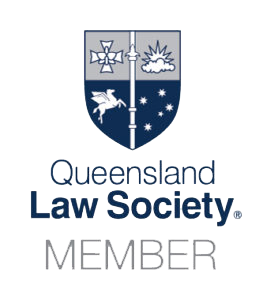What is Estate Planning?
If you have recently purchased your first home, are starting a family, are transitioning to retirement or have experienced a change in your circumstances, a family member or friend may have recommended that you think about preparing your Will.
It can be difficult to know where to start when thinking about your Will, and because of this, many people pass away without preparing a Will at all. Partnering with an experienced estate planning lawyer can make the experience less daunting than it otherwise would be and you will experience peace of mind knowing that you have not left behind an intestate estate (ie. an estate without a Will).
We appreciate that nobody likes to think about leaving behind loved ones and having to make challenging decisions such as who to entrust with finalising your estate, who would be the trusted guardian for your precious young children and how you would like to share your hard-earned assets.
In this article, we will explain what “Estate Planning” is and introduce you to the terminology that we use in our appointments. We hope this helps you feel more comfortable with the idea of preparing a Will.
What is Estate Planning?
Estate planning is the overarching term used for making decisions in relation to:
- Preparing a will – which allows you to nominate how your assets are to be distributed, who are the guardians for your children, and who are the Executors and Trustees of your estate;
- Preparing an Enduring Power of Attorney – which allows you to nominate how you would like to have your personal, financial, and health care matters managed, should you lose the capacity to make those decisions; and
- Preparing or updating binding death benefit nominations – which allows you to nominate how you want the trustee of the superannuation fund to deal with your superannuation after your death.
Terminology that will help you when preparing your Will
Who is the Testator/Testatrix?
The testator/testatrix is the person making the will. We would need to know the following
- Your full legal name
- Any other names you may be known as (e.g. your maiden name); and
- Your occupation
Who are you appointing as executor?
The executor is responsible for carrying out the wishes in the will. We recommend appointing at least two (2) executors. The executor can be someone who benefits under your will, for example, your spouse.
Who will be the guardians of your minor children?
Guardians are responsible for caring for any of your minor children after both parents are deceased. You can nominate multiple people to act as guardians for your children, and they do not necessarily need to reside together.
What your current assets and liabilities are.
In order to advise you on the best way to distribute your estate so that your wishes are carried out, we need to know what you own and what you owe. Please consider if you have other structures such as trusts, companies, family trusts, and self-managed superannuation funds, and provide us with the appropriate deeds.
Details of your superannuation.
Your superannuation passes outside of your will unless you specifically direct the trustee of the superannuation fund to pay your superannuation into your estate. We often complete binding death benefit nominations at the same time as you complete your other estate planning documents to ensure that your wishes are carried out.
Details of your life insurance.
Life insurance can sometimes pass outside of your will, depending on if it is connected to your superannuation or a stand-alone policy.
Your preferred funeral arrangements.
Although not always an easy topic of conversation, you need to consider the following:
- Would you like to be buried or cremated?
- Is there a family plot you’d like to be buried or a specific location for your ashes to be spread?
- Are you an organ donor?
- Do you wish to donate your body to science?
Are you giving any specific gifts?
You may have specific items that you wish to give to a child, friend, or family member. We would need to know the particulars of the gift e.g. ‘my pear-shaped engagement ring’ and the full name of the recipient. Gifts can also include money or gifts to charities.
Who are the beneficiaries of your estate?
Once all of the specific gifts listed in your will have been given (termed the ‘disposal of your estate’) you are left with what is known as the residue. You need to consider who you direct your residuary estate to and what would happen if that person couldn’t inherit.
For example:
Scenario 1 – all to my spouse
Scenario 2 – all to my children or their children
Scenario 3 – all to my parents and siblings
Are any of your beneficiaries vulnerable?
If any beneficiaries are disabled, have addiction or gambling issues or are vulnerable in some other way, extra measures can be put in place to protect their inheritance.
Would your estate be considered large or complex?
For estates in excess of one (1) million dollars, or where there are blended families, a testamentary trust should be considered. These trusts can be discussed during your appointment.
Preparing Your Enduring Power of Attorney
You can legally appoint a trusted friend or relative to act on your behalf to handle your affairs. This person is known as your attorney. An enduring power of attorney is just as important as a will. While a will operates on your death, enduring power of attorney operates during your lifetime. Before visiting a solicitor, you should consider the following:
Who will be your attorney?
We are required to know the full name, address, and contact number of your appointed attorneys.
Your attorney must be:
- Over the age of 18 years
- Someone you trust;
- Able to understand fully what the appointment means; and
- Capable of looking after your affairs.
Your attorney must not be:
- Your paid carer or health care provider;
- Bankrupt; or
- Your service provider for residential servicer where you are a resident e.g. retirement village.
How many attorneys are you appointing?
You should consider appointing at least two (2) attorneys.
How will your attorneys act?
You are able to nominate the manner in which your attorneys act, for example jointly or successively.
What powers are you giving your attorney?
Under an enduring power of attorney (EPA), you may give your attorney the power to deal with all or any part of your financial, personal and health matters. An EPA for financial matters can come into effect either immediately when you lose capacity, or on a specific date, or at a specific event (for example, upon two medical practitioners certifying that you have lost capacity). Health matters can never be delegated earlier than when you have lost capacity.
We understand that estate planning involves making difficult decisions and can be a little overwhelming. We recommend that you meet with Carolyn Ryder in person to discuss your estate planning needs and that you use this guide as a base for understanding the requirements of your estate planning documents.



